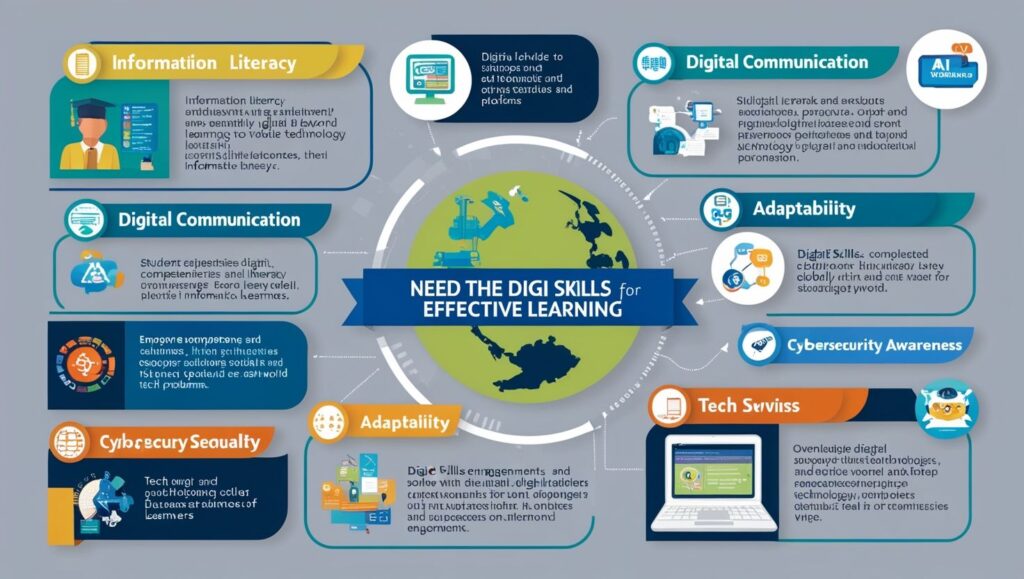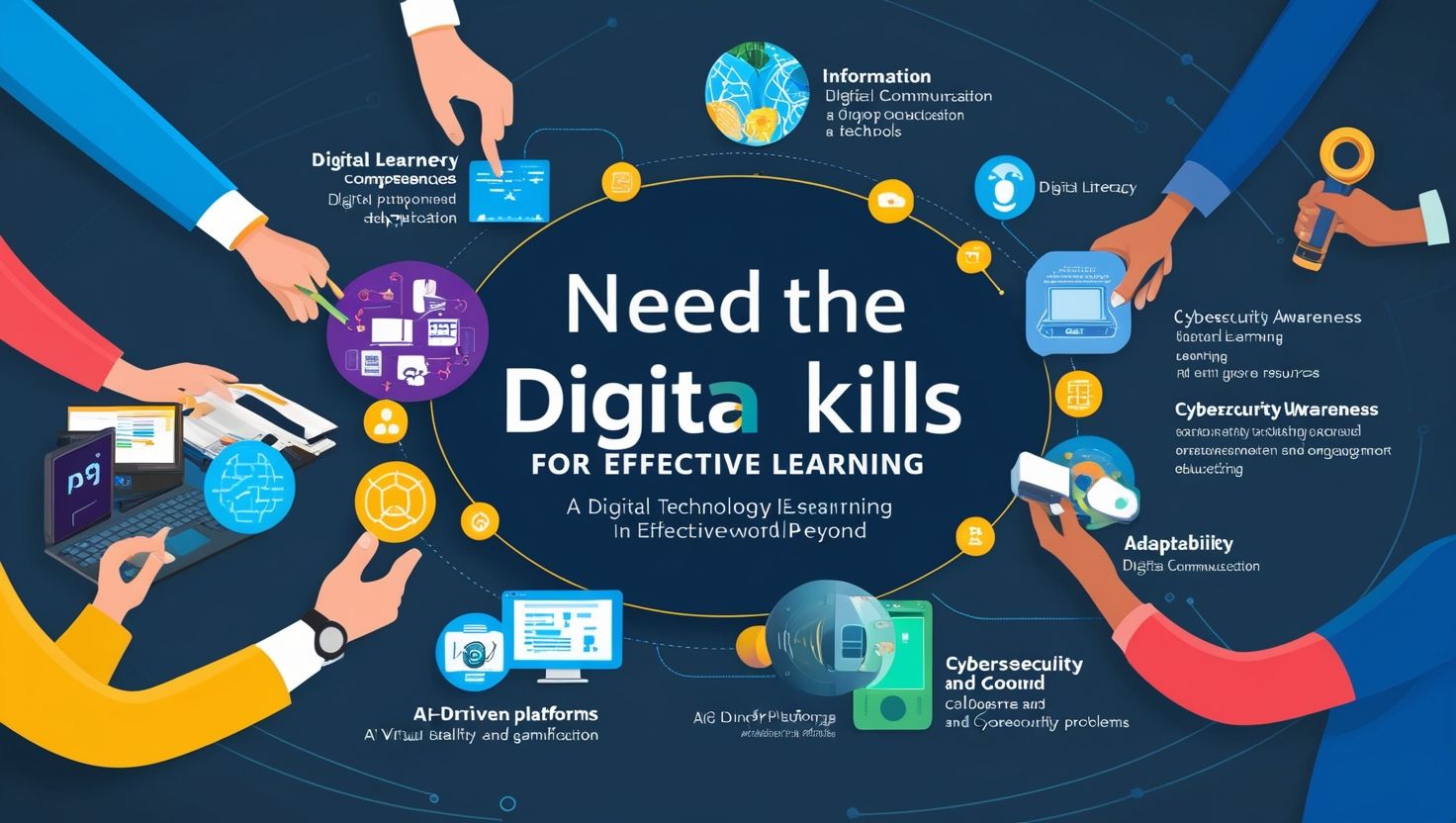The Digi Skills for Effective Learning, In today’s digital era, education transcends traditional classroom settings, harnessing the power of technology to create enriched learning experiences. Digital skills—often termed “digi skills”—are essential competencies that empower individuals to navigate, analyze, and apply digital tools effectively for learning. This article explores the importance, types, and applications of digi skills in fostering effective education.
1. The Importance of Digital Skills in Learning
Digital skills are no longer optional; they are vital for adapting to the demands of modern education and future employment landscapes. Mastering these skills enables students to:
- Enhance Accessibility: Digital tools and platforms ensure learning materials are available anytime, anywhere.
- Promote Collaboration: Students engage with peers globally through shared projects and virtual discussions.
- Develop Problem-Solving Abilities: Advanced tools like simulations and AI-powered platforms provide real-world problem-solving scenarios.
- Boost Creativity: Interactive software and multimedia platforms allow learners to express ideas innovatively.
2. Core Digi Skills for Effective Learning
a. Information Literacy
The ability to locate, evaluate, and utilize online information critically is fundamental. Learners must discern credible sources, avoid misinformation, and apply data effectively in their studies.
b. Digital Communication and Collaboration
Effective use of communication tools, such as video conferencing, forums, and shared workspaces, fosters teamwork and idea exchange. Platforms like Zoom, Google Meet, and Microsoft Teams are pivotal for virtual collaboration.
c. Tech Savviness
Understanding and using digital devices, software, and applications are essential. Proficiency in tools like word processors, spreadsheets, and learning management systems is critical for academic success.
d. Adaptability to New Technologies
Emerging technologies like artificial intelligence, virtual reality, and coding are revolutionizing education. Students must remain adaptable and open to learning new digital tools.
e. Cybersecurity Awareness
Understanding online safety, such as securing passwords, recognizing phishing attempts, and managing privacy settings, is crucial in today’s interconnected world.
3. Implementing Digi Skills in Learning Environments
- Interactive Learning Platforms: Platforms like Coursera, Khan Academy, and Duolingo integrate gamification and AI to personalize learning experiences.
- Blended Learning Models: Combining traditional classroom instruction with digital resources enhances learning outcomes. For example, students can review recorded lectures to reinforce classroom lessons.
- Use of Virtual Reality (VR) and Augmented Reality (AR): These technologies create immersive experiences, enabling learners to explore concepts like history, science, and engineering in a practical context.
- Gamification: Digital games and interactive quizzes foster engagement and make learning enjoyable.

4. Benefits of Digital Skills in Education
- Improved Engagement: Interactive tools maintain learner interest and promote active participation.
- Personalized Learning: AI-driven platforms adapt content to suit individual learning speeds and styles.
- Global Connectivity: Students can collaborate with peers and mentors worldwide, gaining diverse perspectives.
- Resource Efficiency: Digital tools reduce reliance on physical resources, making learning eco-friendly.
5. Challenges and Overcoming Them
While digital skills offer immense benefits, challenges remain:
- Digital Divide: Not all students have equal access to technology. Governments and institutions must invest in infrastructure to bridge this gap.
- Overload of Information: Learners can feel overwhelmed by vast online content. Educators should guide students in curating credible and relevant resources.
- Lack of Training: Teachers need ongoing training to integrate digi skills into curricula effectively.
6. Future of Digi Skills in Education
The integration of AI, blockchain, and data analytics is set to redefine learning. Blockchain ensures secure credential verification, while AI personalizes learning paths. Continuous innovation will demand that learners and educators alike stay agile and informed.
Conclusion
Digi skills are indispensable for effective learning in the modern world. They not only enhance academic outcomes but also prepare learners for dynamic career landscapes. By fostering these competencies, educators and institutions can cultivate a generation equipped to thrive in a technology-driven future.
Would you like references or additional details added?

8 thoughts on “The Digi Skills for Effective Learning”
Comments are closed.